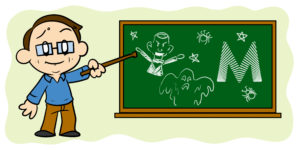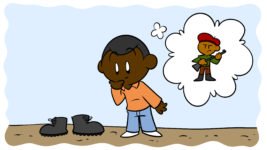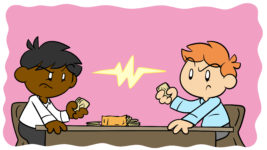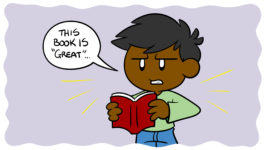Hobbies come in all shapes and sizes. Maybe you enjoy arranging flowers, maybe you try to pursue amateur carpentry from your inner-city apartment, or maybe you can’t stop yourself from assembling and painting toy soldiers. Hobbies are great in that it doesn’t really matter whether you’re good at them or not; they’re things we do for the sheer pleasure of the act.
What you may find surprising is that hobbies can help you become a better writer. Authors and poets from Haruki Murakami to Vladimir Nabokov to Sylvia Plath found their work benefited from their engagement with their hobbies (running, lepidoptery, and beekeeping respectively), and they and many others have written about their hobbies in striking, innovative, and compelling ways.
But how can you best write about your own hobbies, whether they be watchmaking or piano-playing, in your fiction and nonfiction? Well, let’s turn to a few authors who’ve already excelled at this and see what we can learn…
Find the universal appeal
If you’re writing about something niche, it’s tempting to assume you’re preaching to the choir. And, if you’re writing an article for a blog dedicated to your interest, maybe that’s a fair assumption; go ahead, use jargon and assume a level of reader knowledge. If, however, you’re writing about your hobby in a more general context, whether it be fictional or nonfictional, you can’t assume your reader is already an expert, and nor can you assume they’ll even find your hobby interesting. No, to draw them in, you’re going to have to find the vein of universal appeal.
For famed Japanese author Haruki Murakami, author of the novels The Wind-Up Bird Chronicle and Norwegian Wood, writing about his hobby – long-distance running – meant examining it from an angle that emphasized the philosophical side of physical effort and exertion. In What I Talk About When I Talk About Running, he writes:
Even now, when I run along Jingu Gaien or Asakasa Gosha, sometimes I remember these other runners. I’ll round a corner and feel like I should see them coming toward me, silently running, their breath white in the morning air. And I always think this: They put up with such strenuous training, and where did their thoughts, their hopes and dreams, disappear to?
– Haruki Murakami, What I Talk About When I Talk About Running
This passage is barely – only tangentially, really – about running. Instead, Murakami goes beyond the physical act of feet on the ground and finds the human heart beating beneath, thus rendering it interesting and relevant to a readership who may not be interested in or sympathetic toward running as an activity.
Of course, Murakami has two advantages here. The first is that running, like any exercise, tends to lend itself easily to grand metaphors about human endurance and, going further still, the strength of the human spirit. (David Foster Wallace would expand on this in his essay on Roger Federer, ‘Federer Both Flesh and Not,’ explaining that ‘high-level sports are a prime venue for the expression of human beauty. The relationship is roughly that of courage to war.’) It’s true that some hobbies are easier to make broadly appealing than others; Hemingway frames fishing as a noble battle of man versus nature in The Old Man and the Sea, while watchmaking has a decorated history of religious and ontological allusions to fall back on. Finding the broad appeal of something like crocheting or stamp collecting, on the other hand, may be more challenging.
The second advantage Murakami has is that, well, he’s Haruki Murakami. He can rely on a readership who’ll pick up What I Talk About When I Talk About Running not because they’re interested in running, but because they’ve read his fiction and want to absorb some of his wisdom. In other words, they’re interested in fiction and literature, not running.
Murakami exploits this expertly (and perhaps even cynically) by including a chapter entitled ‘Most of What I Know About Writing Fiction I Learned By Running Every Day.’ In this way, he makes running suddenly appealing to those who’re only reading the book in the first place because they’re interested in writing, reading, and fiction – running suddenly becomes a kind of key to broader literary understanding. The truth is more pedestrian, of course; Murakami merely draws parallels between the endurance and discipline needed to run and the endurance and discipline needed to write:
Most of what I know about writing I’ve learned through running every day. These are practical, physical lessons. How much can I push myself? How much rest is appropriate and how much is too much? How far can I take something and still keep it decent and consistent?
– Haruki Murakami, What I Talk About When I Talk About Running
One trick to writing effectively about hobbies, then, is to only tangentially write about hobbies in the first place. Instead, tie the hobby you’re writing about to broader human, natural, and cosmic questions, and write as if it is the key to understanding – or, better, experiencing – these most essential and elemental of human experiences.
Be esoteric
On the other end of the spectrum to broad appeal, we have esotericism. Esotericism implies secret knowledge – a trove of insights and know-how only available to the chosen few. This may seem contradictory, but it’s important to represent both in your writing, whether it’s fiction or nonfiction.
Being esoteric helps present your hobby’s followers as a group with its own secrets, perceptions, and view of the world, which in turn presents you as a vaguely romantic figure and, more importantly, your hobby as something valuable, perception-expanding, and wholesome. We see Jonathan Franzen lean into this in his piece on his love of birdwatching:
Things with feathers can be found in every corner of every ocean and in land habitats so bleak that they’re habitats for nothing else. Grey gulls raise their chicks in Chile’s Atacama Desert, one of the driest places on Earth. Emperor penguins incubate their eggs in Antarctica in winter. Goshawks nest in the Berlin cemetery where Marlene Dietrich is buried, sparrows in Manhattan traffic lights, swifts in sea caves, vultures on Himalayan cliffs, chaffinches in Chernobyl. The only forms of life more widely distributed than birds are microscopic.
– Jonathan Franzen, ‘The Radical Otherness of Birds,’ The Guardian
Of course, Franzen’s narrowness here isn’t compelling merely for its romance; it’s engaging too because of his expertise. By sharing these niche facts, Franzen paints himself as an authority with lessons worth listening to; it’s Aristotle’s ‘Ethos,’ a mode of persuasion that relies on presenting the speaker (or writer in this case) as a reliable, authoritative, and trustworthy source.
There’s also something more abstract and difficult to quantify about esoteric facts that is immensely charming. It has to do, I think, with their uselessness; yes, there are, I suppose, scientific and ecological reasons for knowing which bird species roost in which inhospitable environment, just as there’re historical reasons for being able to accurately date a particular stamp and tactical reasons for poring over tabletop battleplans, but, in day-to-day life, these facts will never prove useful. Like hobbies themselves, they’re totally impractical, totally separate from the concepts of success and failure, and are products of sheer, genuine pleasure.
In our modernity of marketable skills, results-oriented business, and education-for-the-sake-of-employment, there’s something delightfully quaint about, say, being able to craft cranes from folded paper or name all the constellations. Hobbies are inherently joyous, and by leaning into that in your writing, your reader will experience that joy vicariously.
Of course, remember that the intent should always be to induct your reader into your esoteric discipline, not just to lord your superior knowledge over them. Give your reader the gift of hidden knowledge, but don’t position yourself as lecturer.
Invite them along
The great thing about writing about one of your own hobbies is that it’s hard not to come across as passionate. That energy will enliven your prose but, if you let it, it can also lead you down a rabbit hole of tangents, anecdotes, and jargon-littered asides. Yes, detail is good; esoteric knowledge is good; but easy there, zoom out a little!
This is where universal appeal comes in. By asking yourself what about your hobby appealed to you in the first place, you can identify what’s likely to appeal to those of your readers who aren’t yet converted. Maybe you won’t, when writing about fishing, opt for Hemingway’s man vs. nature conflation; maybe instead you’ll think of getting away from it all, returning to nature, and the slow dissipation of your worries in the face of a great blue lake. Maybe you’ll muse a little about how this ritual of rural life offers a psychological balm to the pressures of city living, and just like that you’ve touched upon themes far broader than just catching fish.
Approaching your subject from the right angle can absolutely transform a reader’s relationship with a hobby they’ve never tried. By focusing on the companionship of fishing and the bizarre musings their sedate hobby allows, comedians Bob Mortimer and Paul Whitehouse have prompted a legitimate renaissance in their English readership’s interest in fishing. The secret, of course, is that it’s not really about the fishing at all – that’s just the excuse for joining in with two people who are having a genuinely amazing time.
For that, in the end, is the trick to writing about your hobby in a compelling, non-technical manner. Hobbies don’t make logical sense, and they can rarely be made attractive through that lens. Bombarding the reader with technical details may show your own expertise, it may even educate them, but it will rarely enchant them. Yes, there are practical benefits to getting into X, but it’s the experience that people want to read about. In discussing hobbies, you’ve got to muse on this: on the appeal, sure, but also on the weird human quirk that makes us pursue hobbies in the first place. It’s here that the gold vein lies.
Have you written about your hobbies before? Do any of your favorite authors write about hobbies particularly well? Let me know in the comments, and check out The 3 Golden Rules Of Writing About Your Pet and Write Better Sports Fiction With These Tips for more on writing about your real-world interests.





